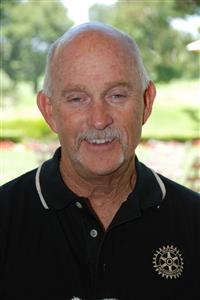Greg Welch - Amazon Mission Trip
by Lorine Parks
If we’re sleeping, stacked like cordwood in native hammocks and it’s ten more uncomfortable hours by dilapidated boat to our destination, we must be with Greg Welch again, on a mission of mercy.
This time we’re rebuilding the walls of a church for a people who live in the headwaters of the Amazon in Peru. Calvary Chapel in Downey California has sent a team of volunteers to reconstruct a small house of worship. The indigenous people have the know-how for rebuilding, and the power tools, but they don’t have enough man power and they can’t afford the lumber, in the form of logs which have to be cut into boards and nailed into place.
The story begins with embarkation onto this craft in Pucallpa, a bustling frontier town on the banks of the Yucali river, which is a major tributary of the mighty Amazon. The temperature is in the mid-eighties, and we have already flown from Los Angles to Lima, then hopped over the Andes into the basin of the Amazon, and ridden a truck to Pucallpa. We pay our own way as volunteers, and a coalition of various churches will pay for the lumber. This boat we are travelling on makes the African Queen look like the Queen Mary
After travelling on a river with suspicious bumps and mysterious swirls – crocs? pirhana? – we arrive at Puerto Galilea, our host village. We are welcomed with a huge fish for dinner, freshly caught. Other local food comes from chickens, pigs and fruit. The present one-room church’s walls seem to be held together mainly by flaking blue paint. The boards are termite ridden, and everything has to be replaced. Without a structure to enter into, the villagers have been having “church in the round,” outdoor services where everyone sits in a circle and sings and prays. This does not work well when it rains.
Our first expedition takes us into the jungle by dugout canoe to buy some logs, which are the principal cargo on this part of the water. Beautifully brilliant tropical flowers hang from the trees. We are exhausted by the heat and the humidity and by simply loading the logs onto the wagon.
Before we came, we had pills and shots for malaria and yellow fever, but there is nothing you can do for the insects. One of our number gets huge red welts from being bitten by the black flies. Others see spiders as big as their hands drop from the ceiling into their shoes. Some of these spiders spit their venom, instead of biting, so they are dangerous if they get you in range.
But enough of the glamour. Bringing the logs back to the village we hear stories of pirates, and decide that if we are accosted, we will willingly give up our payload, unless we are actually threatened with bodily harm. Then, we agree, we will all storm the attackers. We see gunboats on the river, but luckily we do not encounter hostilities.
Back at the village, there are power saws to cut the logs into boards, and we spend three days putting the church back together again. The temperature is near 100 degrees and we are hot and wet. All in all, we agree that as hardship trips go, this has been more difficult than the Philippines, than Haiti, even more arduous than our trip last fall in Nepal. Undaunted, we are looking forward to wherever our church sends us next.
